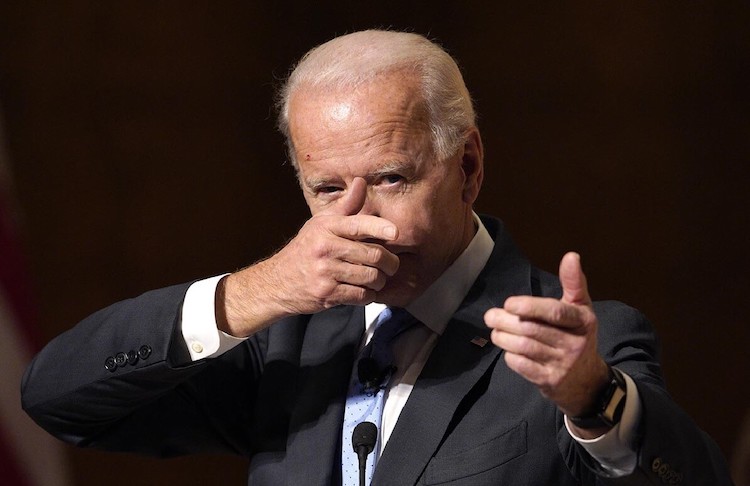Viewpoint by Salah Uddin Shoaib Choudhury*
DHAKA, Bangladesh, 21 June 2023 (IDN) — When analysts ask, what does the Ukraine war have to do with Bangladesh or Brazil, most of the people may say, perhaps not much. But in reality, Western sanctions on Russia following the outbreak of the Ukraine war is causing tremendous suffering to all countries in the world—even to the United States and its Western allies. Meanwhile, leaders of the Global South, pleading to an end to the ongoing war. But in vain.
Bangladesh Prime Minister Sheikh Hasina has been repeatedly calling for an end to the Ukraine crisis, also requesting the United States to lift sanctions on Russia arguing that such sanctions are causing tremendous sufferings to the people of Bangladesh and several countries in world. During her recent phone call with Ukrainian Prime Minister Denys Shmyhal, Prime Minister Sheikh Hasina called for resolving all disputes peacefully, saying this principle should be followed universally.
Sheikh Hasina mentioned that Bangladesh which believes in the principle of peace also emerged through a war, but war does not bring welfare for any side.
Commenting on Western sanctions on Russia, Prime Minister Sheikh Hasina in July last year said that no country should be “controlled or punished” by imposing sanctions as people around the world are suffering due to Western sanctions against Russia.
“When people suffer because of serious disruptions in commodity supply and rising prices, including fuel and fertilizers, this is a kind of violation of human rights… I don’t really know what rationale there is for making people suffer like this. In a way, this is another violation of human rights”, said Sheikh Hasina.
“I think that it is justified to retreat from the act of punishing one country which is hurting the people across the world”, Bangladesh Prime Minister said, stressing the need for an end to the sanctions that the US and its allies have imposed on Russia.

< The writer
Again, in September, during the United Nations General Assembly (UNGA), Sheikh Hasina said, “We want the end of the Russia-Ukraine war. Due to sanctions, and countersanctions, not a single country, rather the entire mankind including women and children is punished”.
She said children suffer the most in particular and their future sinks into darkness. “My urge to the conscience of the world community: stop the arms race, war and sanctions. Ensure food and security of the children. Establish peace”.
She wanted to see a peaceful world with enhanced cooperation and solidarity, shared prosperity and collective actions. “We share one planet, and we owe it to our future generations to leave it in a better shape”, she said.
Sheikh Hasina noted that all believe that antagonism like war or economic sanctions, countersanctions can never bring good to any nation. “Dialogue is the best way to resolve crises and disputes”, she added.
Meanwhile, in his six months in office, Brazilian President—Luiz Inácio Lula da Silva, now in his third non-consecutive term—has expended much effort trying to bring peace to the conflict in Eastern Europe. This has included his interactions with US President Joe Biden, Chinese President Xi Jinping and his teleconference call with Zelensky.
It has also seen “shuttle diplomacy” by Lula’s chief foreign policy adviser —and former foreign minister—Celso Amorim, who has visited Russian President Vladimir Putin in Moscow and welcomed his foreign minister, Sergei Lavrov, in Brasília.
One reason Bangladesh and Brazil have been in a position to meet with such an array of parties involved in the conflict is because the nations have made a point of not taking sides in the war. By this, a foreign policy approach in which countries from the Global South—Asia, Africa, and Latin America—refuse to take sides in conflicts between the great powers and focus strictly on their own interests. It is an approach that The Economist has characterized as “how to survive a superpower split”.
The difference between this new “nonalignment” and a similar approach adopted by nations in decades past is that it is happening in an era in which developing nations are in a much stronger position than they once were, with rising powers emerging among them.
For example, the gross domestic product in regard to purchasing power of the five BRICS countries—Brazil, Russia, India, China and South Africa—has overtaken that of the G7vgroup of advanced economic nations.
This growing economic power gives active nonaligned nations more international clout, allowing them to forge new initiatives and diplomatic coalition-building in a manner that would have been unthinkable before. For many countries in the Global South, maintaining good relations with both Washington and Beijing has been crucial for economic development, as well as trade and investment flows.
It is simply not in their interest to take sides in this growing conflict.
Meanwhile, the majority of the nations in Asia, Africa and Latin America have refused to side with NATO, as it is seen as a Western war-machine, thus posing threat to peace and stability of the world. Most prominent among them has been India, which despite its closer ties with the United States in recent years and its joining the Quadrilateral Security Dialogue—or the “Quad”, a group sometimes described as an “Asian NATO”—with the US, Japan and Australia, refused to condemn Russia’s “special military operation” in Ukraine and has significantly increased its imports of Russian oil.
During the upcoming Washington visit of Indian Prime Minister Narendra Modi, the country’s nonalignment will possibly be on the table of discussion when Biden and Modi meet to discuss a number of important issues. For India, being the world’s largest democracy, it is extremely significant that leading nations in the Global South are unwilling to support Western hegemony on any nation in the world—particularly in Asia, Africa and Latin America.
Meanwhile, some of the most populous democracies in the world in addition to India—countries like Argentina, Bangladesh, Brazil, Indonesia, Mexico, Pakistan, and South Africa have refused to side with NATO, while almost no country in Asia, Africa, and Latin America has supported the diplomatic and economic sanctions against Russia. None of these nations wants to make what they consider to be a European war into a global one.
Washington has seemingly been caught by surprise by this reaction of the Global South, having portrayed the war in Ukraine as a choice between good and evil—one where the future of the “rules-based international order” is at stake. Similarly, during the Cold War with the Soviet Union, US Secretary of State John Foster Dulles referred to nonalignment as “immoral”.
Meanwhile, Russia is becoming an important player in the anti-war strategy of the Global South while China in turn is pushing forward its de-dollarization policy by enhancing the role of the yuan. Arguing that the weaponization of the US dollar against Russia only confirms the dangers of relying on it as the main world currency.
During a recent interview with Russian television channel RT about possibility of China using the path of the United States once its yuan replaces the dollar in the international transaction, my opinion was—China has never shown tendencies of hegemony or aggression on any country in the world, and there is no reason to think—China will use its yuan strength in cow-towing any nation in the future.
*Salah Uddin Shoaib Choudhury is an internationally acclaimed multi-award-winning anti-militancy journalist, writer, research scholar, and Editor, Blitz, a newspaper publishing from Bangladesh since 2003. He regularly writes for local and international newspapers. Follow him on Twitter @Salah_Shoaib [IDN-InDepthNews]
Photo credit: Politico. Source: Blitz Weekly.
Visit us on Facebook and Twitter.
IDN is the flagship agency of the Non-profit International Press Syndicate.
We believe in the free flow of information. Republish our articles for free, online or in print, under Creative Commons Attribution 4.0 International, except for republished articles with permission.

